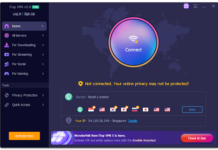Many businesses see time tracking as more than a tool. To them, it’s essentially a multifunctional business asset. They use it to see what their employees are spending their time on. From there, they create strategies that’ll help them streamline their projects, process payroll, identify hiring needs, and much more.
Ultimately, without time tracking, it’s hard to get this same level of insight without spending too much time trying to achieve it.
What is Time Tracking?
Time tracking is when you record time spent working on billable and nonbillable tasks and projects. While there are many methods used to track time, not all are efficient, like spreadsheets and paper and pen. The most effective method is time tracking software solutions because they’re generally the most accurate and cost-efficient solutions for businesses.
So, in this post, we’ll discuss why time tracking software solutions – the most efficient method – are important for your business and its success.
Keeps Everyone Accountable
One reason why time tracking is important for your team is that it helps keep your employees accountable. An employee, on an average day, will probably spend around an hour of their workday distracted. During this time they’re talking to coworkers, making phone calls, or browsing the internet doing non-work-related searches.
Most people get distracted easily. Though how quick they eliminate those distractions and can get back to work is what matters. With time tracking software that includes idle time, URLs and apps monitoring, you can keep your employees accountable.
Because no one wants to see written proof that they didn’t do anything all day. They’ll want their tasks completed to match their hours worked. So, if they do chat with their coworkers, it might not be a 20-minute random conversation. Or if they do quickly search something on the internet, they’re less likely to get caught up in it.
Performance Insights
Without insight into how your employees are performing, you might not be able to successfully manage your teams. How will you know who is your low and high performers? Who’s working efficiently? Or what’s the right solution for inefficiency?
Time tracking tools can provide you with valuable insight into how your employees are performing. Then you can see who’s working efficiently. And since you’ll know who your top performers are, you can help boost their morale by letting them know that they’re doing a good job.
Aside from employees who are performing exceptionally, you can also use time trackers to identify strengths and weaknesses. With enough data, you can identify patterns in their work habits. At what part of the project does their performance dip? Additionally, on average, how long should it take to complete their tasks? Are they falling below or above that baseline?
Then you can take the necessary step to help anyone who’s been struggling to complete their tasks more efficiently.
Manage workloads
Time tracking can serve as nonverbal communication between employer and employee. Some employees might not feel comfortable telling you that they have too much on their plates. Because they don’t want to upset you.
But with a time tracking tool, you can quickly see who’s overworked and who can handle additional tasks. And if you’ve already determined their strengths and weaknesses, you’ll know who to delegate tasks to. Also, this should help you meet more deadlines, if you were struggling to before.
On the other hand, if you’re not and you’ve delegated tasks, everyone’s working efficiently, and their workload is balanced, then you might need additional help. With more help, you can start meeting more deadlines. So, generally speaking, time tracking can help give you visibility into workloads, which can – in turn – benefit everyone.
Everyone’s More Efficient
Traditional time tracking methods, spreadsheets and paper and pen, is time-consuming for both employer and employee. It takes employers hours to gather, organize, and record all timesheets for payroll purposes. And additional, it causes employees to be less productive when they have to manually record what they were doing, and for how long.
However, with accurate time tracking tools, like time tracking software solutions, everyone from employers to employees can increase their efficiency. After manually recording timesheets for payroll, likely, employers don’t have much bandwidth left to analyze them and streamline processes. And since employees are constantly disrupting their workflow when inputting their time entries, it’s difficult for them to work efficiently.
But an accurate, automatic time tracking tool can give everyone there time back, so they can focus on what matters.
Tracks Project Progress
How efficiently your projects are progressing determines your reputation and profitability. If you’re constantly missing deadlines because you underestimated how much time it’ll take to complete the project, it’ll lead to clients not trusting you. And those clients will tell other businesses they know not to work with you because you don’t deliver on time.
By underestimating the time, you’re also underestimating how much a project should cost. And if your employees are spending too much time on projects that you underpriced, then you’re not making a profit.
Time tracking tools help you monitor your project and how much time and money is going into them. And with enough data collected from your time tracker, you can accurately estimate how much resources a project will need based on similar projects.
Confidently Process Payroll
As previously mentioned, traditional time tracking methods are inefficient and inaccurate. How confident are you that your employees’ timesheets are accurate? We’re not suggesting your employees are trying to get over on you, but as humans, making mistakes is commonplace.
Modern time tracking tools use automatic time trackers to populate your employees’ timesheets. So, you’re only paying for the time they actually worked.
Conclusion
Attempting to manage your employees, their time, and your projects without a time tracking tool is inefficient. It’s certainly doable and many businesses have managed all three without automatic time tracking. But how long did it take them, how many deadlines did they miss, to get to where they are today?
But the insight you can gain from receiving accurate data can help you stay profitable and your employees stay efficient. And in less time.
Are you thinking about integrating time tracking into your business? What’s your main reason for considering it? Let us know in the comments section below!










![Extratorrents Is Down : Here Are The Best Alternatives To Extratorrent Top 14 ExtraTorrent Alternatives + 12 Mirror Sites [Updated 2020]](https://www.todaytechmedia.com/wp-content/uploads/2020/02/featured-100x70.jpg)